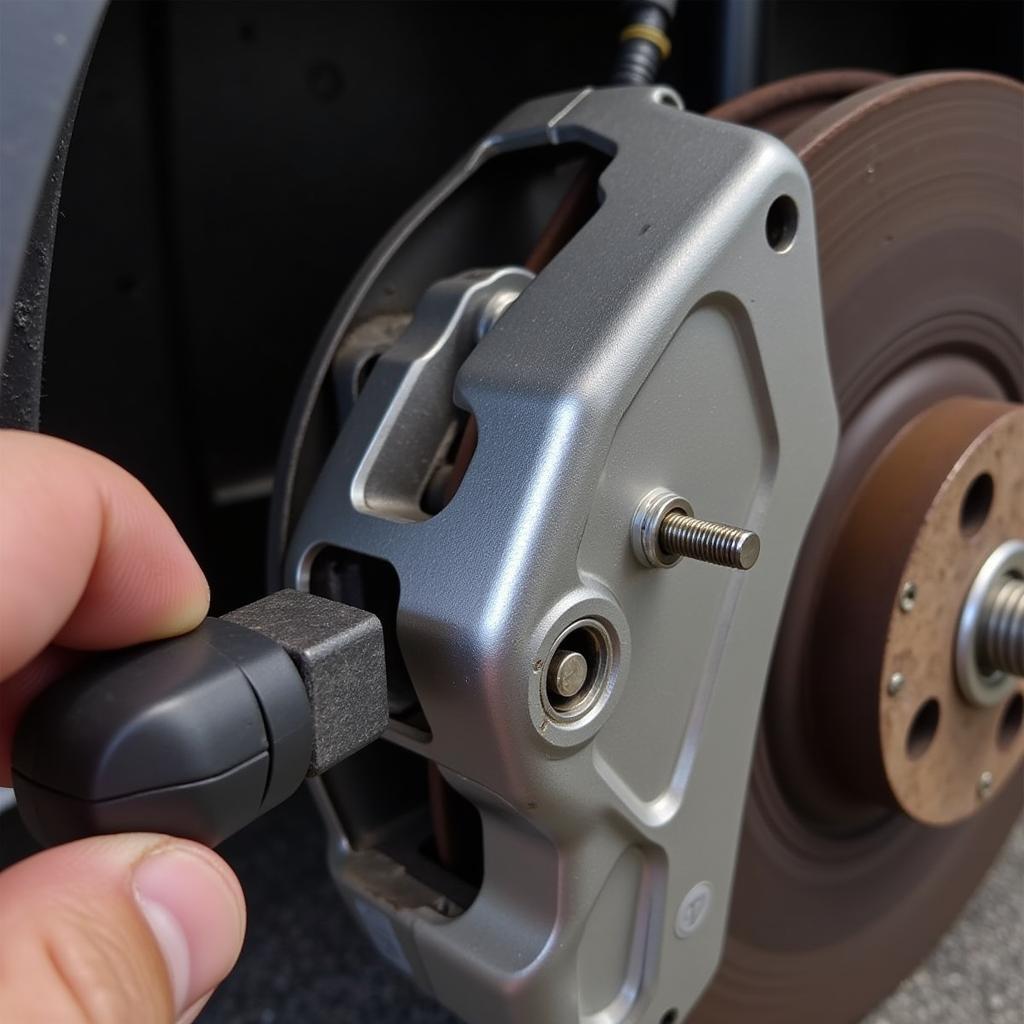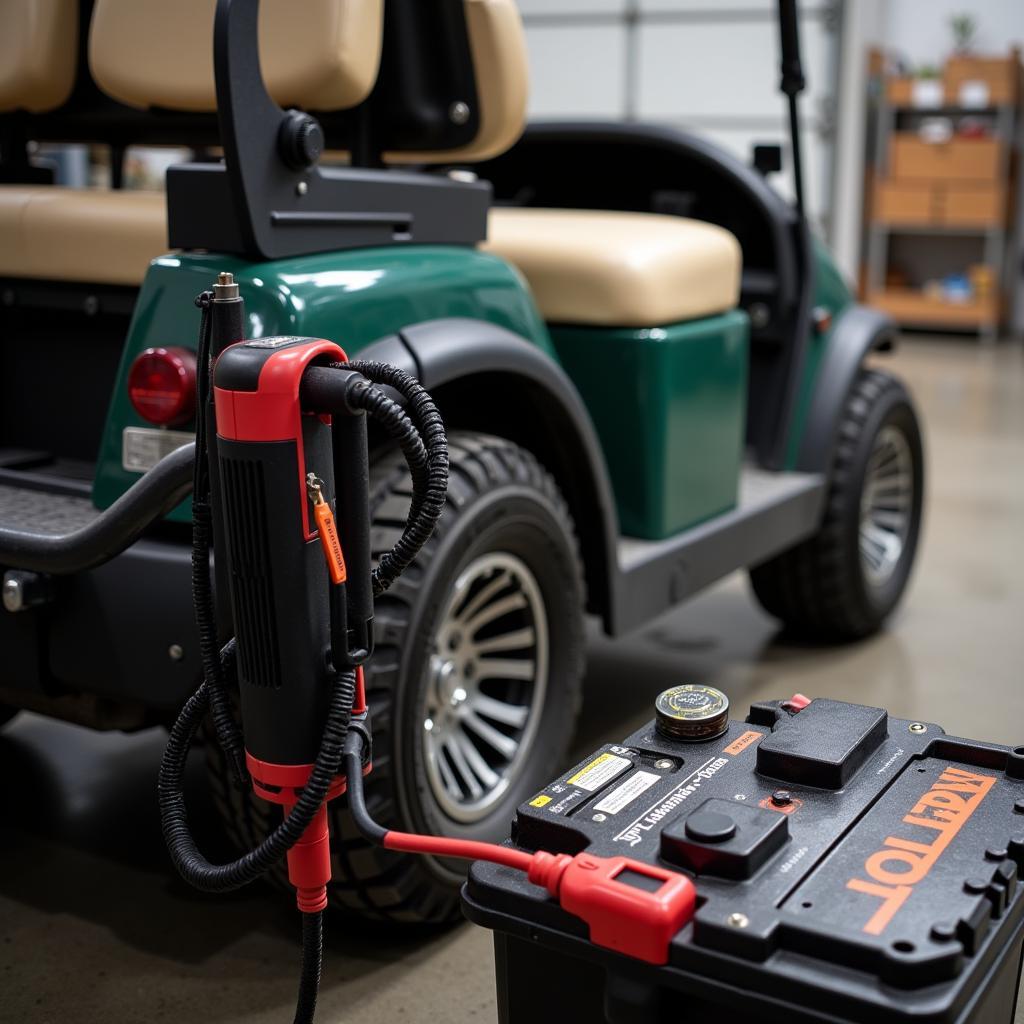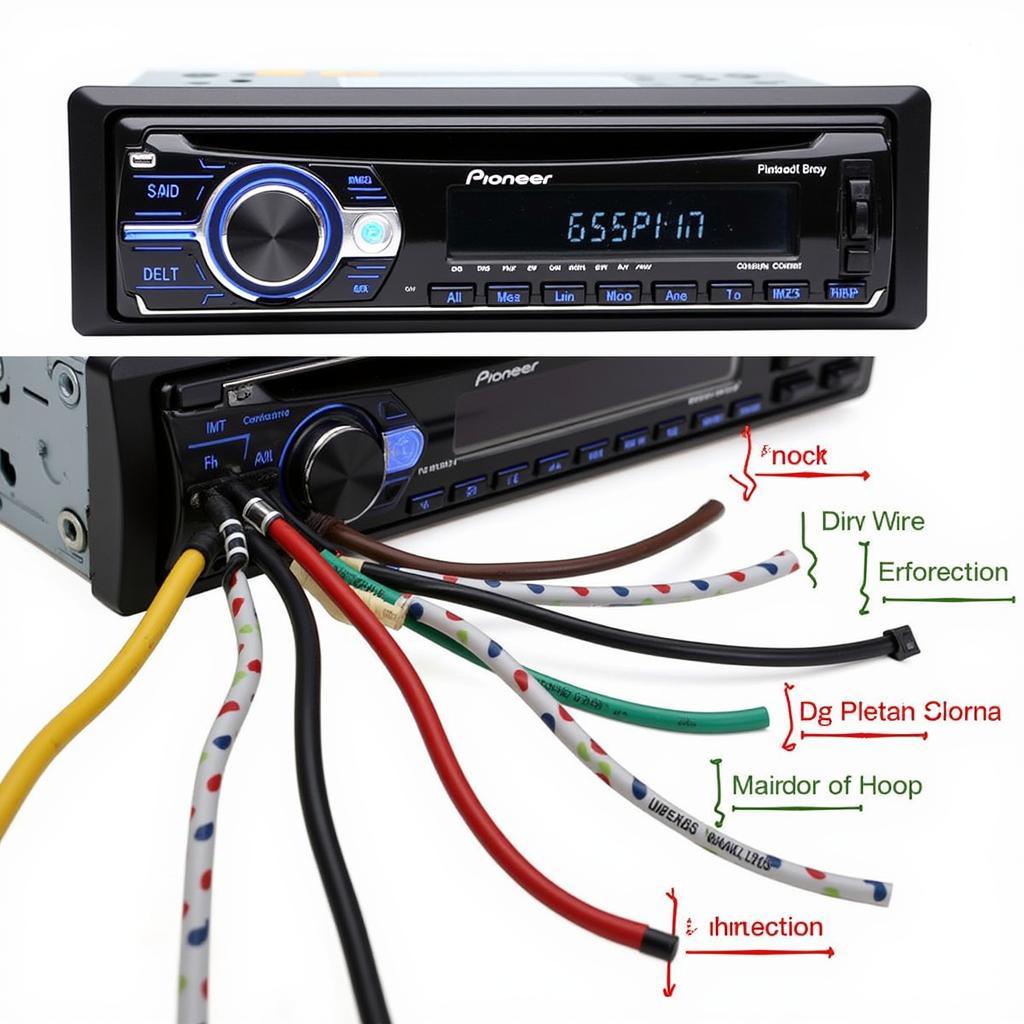You’ve upgraded your 370z brakes for better performance, but now you’re facing a frustrating issue: the brake warning light stubbornly refuses to turn off. This is a common problem after brake modifications, and understanding why it’s happening is the first step to getting it fixed. We’ll explore the most common culprits, guide you through troubleshooting, and offer solutions to get your 370z back on the road with confidence.
Understanding Your 370z’s Brake Warning Light
The brake warning light is part of your 370z’s sophisticated self-diagnostic system. It illuminates for various reasons, not all of which indicate a critical failure. Understanding what triggers this light is key to pinpointing the problem after a brake upgrade. Common triggers include low brake fluid, a faulty parking brake switch, issues with the ABS system, and problems with the brake pad wear sensors.
Common Causes of a Brake Warning Light After a 370z Brake Upgrade
After upgrading your 370z’s brakes, the warning light might be triggered by several factors:
- Incorrectly installed or faulty brake pad wear sensors: If your new brake pads came with wear sensors, their improper installation or a defect in the sensor itself can trigger the warning light.
- Low brake fluid level: When you replace brake components, some brake fluid loss is normal. However, if the level drops too low, the warning light will activate.
- Air in the brake lines: Introducing air into the brake lines during the upgrade process can also cause the warning light to come on.
- Compatibility issues with aftermarket parts: Using aftermarket brake components that are not fully compatible with your 370z’s braking system can lead to various issues, including the illumination of the warning light.
- Damaged wiring or connectors: During the upgrade, you might inadvertently damage wiring or connectors related to the braking system.
Troubleshooting Your 370z’s Brake Warning Light
Now, let’s delve into how to troubleshoot this issue. Here’s a step-by-step guide:
- Check the brake fluid level: This is the easiest check. Locate the brake fluid reservoir and ensure the fluid level is within the specified range marked on the reservoir.
- Inspect the brake pad wear sensors: Carefully examine the brake pad wear sensors. Make sure they are correctly installed and not damaged. If the sensors are worn out, they need to be replaced.
- Check for leaks: Thoroughly inspect the entire brake system for any signs of fluid leaks. Look for wet spots around the calipers, brake lines, and master cylinder.
- Bleed the brakes: If you suspect air in the brake lines, bleeding the brakes is crucial. This process involves removing air bubbles from the brake lines, restoring proper brake function.
- Scan for diagnostic trouble codes (DTCs): Use an OBD-II scanner to retrieve any stored DTCs related to the braking system. These codes can provide valuable insights into the specific problem.
 Close-up of 370z Brake Pad Wear Sensor
Close-up of 370z Brake Pad Wear Sensor
Fixing the 370z Brake Warning Light Issue
Based on your troubleshooting findings, you can take the following steps:
- Top up or replace brake fluid: If the fluid level is low, top it off with the correct type of brake fluid recommended for your 370z. If the fluid is contaminated, a complete flush and replacement are recommended.
- Repair or replace damaged components: If you find any damaged components, such as brake lines, calipers, or sensors, repair or replace them as necessary.
- Address compatibility issues: If you suspect compatibility issues with aftermarket parts, consider switching to OEM parts or consulting with a qualified mechanic specializing in Nissan 370z modifications.
- Consult a professional: If you’re unable to pinpoint the problem or fix it yourself, it’s always best to consult a qualified mechanic who has experience with 370z brake systems.
“After a brake upgrade, the warning light often points to a simple fix, like a low fluid level or a faulty sensor,” says John Miller, a seasoned automotive technician with over 20 years of experience specializing in Nissan performance vehicles. “However, it can also indicate more complex issues, especially with aftermarket components. Don’t hesitate to seek professional help if you’re unsure.”
Conclusion
Dealing with a persistent brake warning light after a 370z brake upgrade can be frustrating. By understanding the common causes, following the troubleshooting steps, and implementing the appropriate fixes, you can resolve the issue and enjoy your upgraded brakes with peace of mind. Remember, a properly functioning brake system is crucial for your safety and the performance of your 370z.
FAQ
- Can I drive my 370z with the brake warning light on? It’s not recommended. The warning light indicates a potential problem with your braking system. Driving with a compromised braking system is dangerous.
- How often should I check my brake fluid level? Check your brake fluid level at least once a month.
- What type of brake fluid should I use in my 370z? Consult your owner’s manual for the correct brake fluid type.
- How do I bleed my 370z’s brakes? Bleeding brakes requires specific procedures. If you’re not comfortable doing it yourself, consult a qualified mechanic.
- Are aftermarket brake pads always compatible with my 370z? Not necessarily. Always verify compatibility before purchasing and installing aftermarket parts.
- How much does it cost to diagnose and fix a brake warning light issue? The cost varies depending on the underlying problem and labor rates.
- Can I reset the brake warning light myself? While you can sometimes reset the light by addressing the underlying issue, using an OBD-II scanner is often necessary to clear any stored DTCs.


